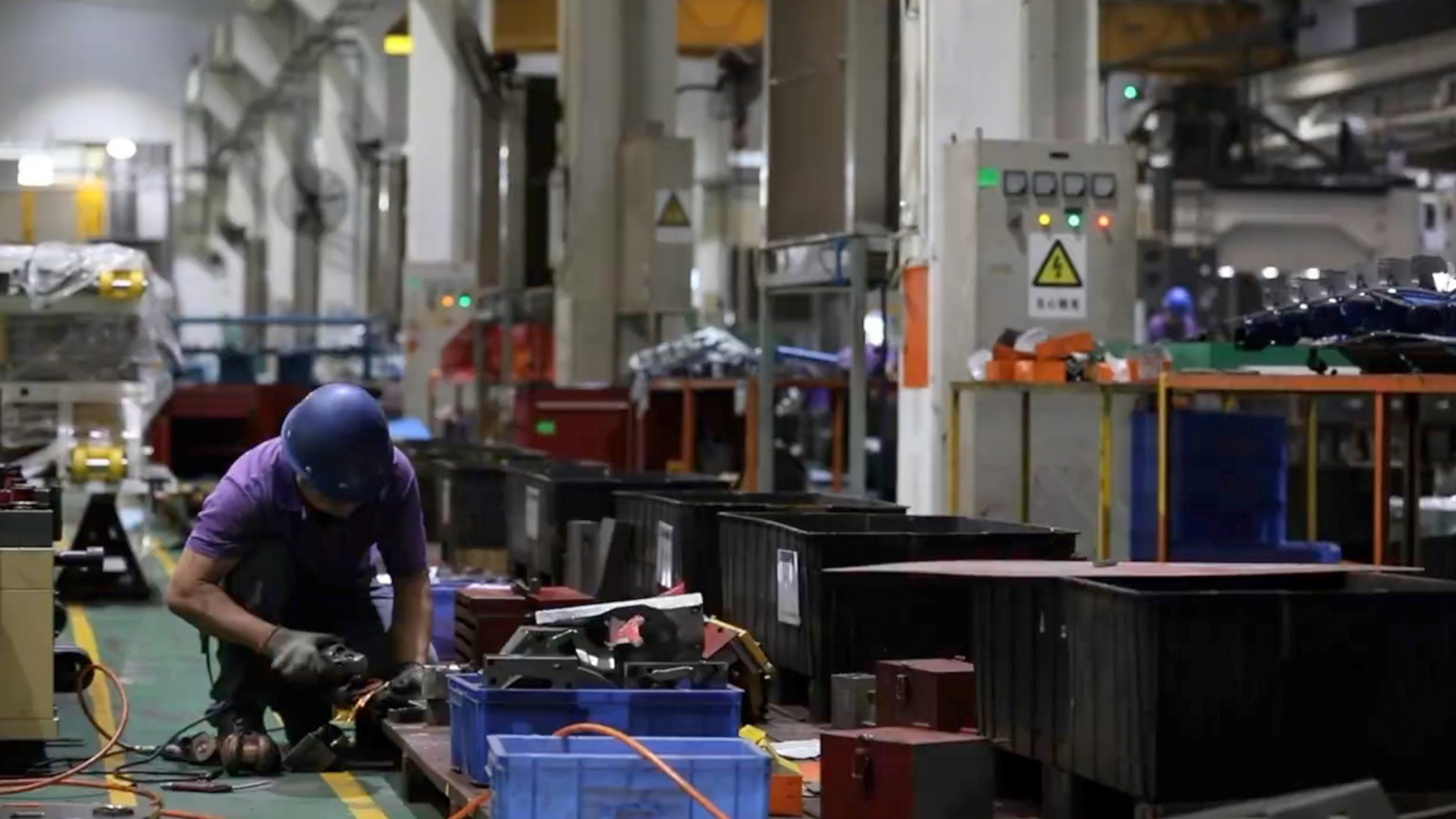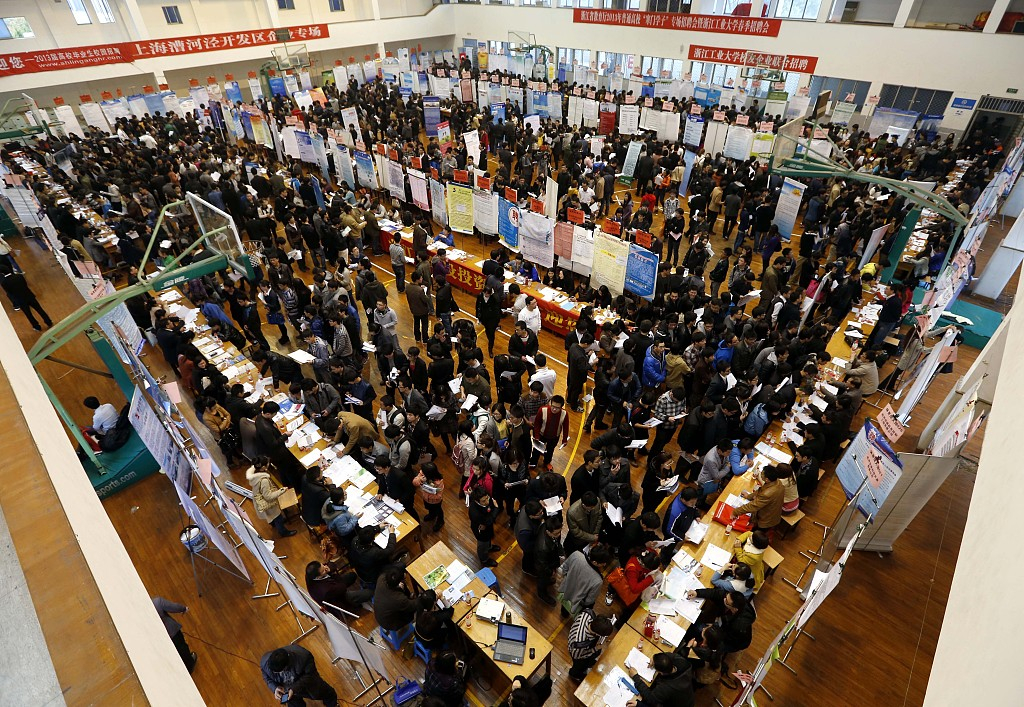02:21

China's southern province of Guangdong has historically been the hub of its manufacturing industry. To many it was, and perhaps still remains, the factory of the world. But for nearly a decade now, the country's economy has been shifting away from its traditional base towards domestic consumption via services, though Chinese manufacturing has not yet been fully displaced.
Many companies in the city of Dongguan, located in Guangdong Province, continue to be at the forefront of the region's manufacturing sector. The industry there traditionally required a high number of staff able to man assembly lines and churn out all types of goods and products. But as robotics and artificial intelligence (AI) become more prevalent, as well as automated factories and processes, the impact on the labor market is becoming apparent.
A lower staff count, cheaper labor and redundant positions are all a reality for companies using technology to boost efficiency and output. But for a city of Dongguan's manufacturing prowess and stature, the authorities have looked to promote vocational training programs with select companies.
"In terms of training, we have set up nine sub-bases for high-tech public training where skills upgrading and training take place. Each qualified student will be given 2,000 yuan from the local government. This series of policies and through the government's support, allows companies to accumulate greater talents over time," says Wu Guangming, deputy director of the Dongguan Public Training Center for High Skilled Workers.
Some of this focus and public training centers are employed by arguably the country's largest producer of car moulds, Dongguan Vision Tool & Mould. The enterprise, holding 20 years' worth of experience in manufacturing alongside a labor force of 800 workers, has deployed both domestically built robots and imported machines to help speed up their assembly process.
Having already developed an in-house training center with a comprehensive curriculum, the company partnered with the local government in 2019 to provide staff with another option to improve their on-the-job skills and technical abilities. Company executives say their final products and the quality of what they produce truly comes down to their workers' capabilities.

"In terms of our products, all of them go through each of our employees across the assembly line. From surface projects, to manufacturing and to the final assembly. Every product will pass through our staff's hands. And it's only when they produce a sound product that our goods will be competitive," explains Liu Xiaolong, the general manager of Dongguan Vision & Mould.
He adds that all types of training, be it for management or factory line workers, is tantamount to not only the companies market-leading and innovative products, but also to their global and future success.
"Our training is divided into three systems, including basic training for staff focusing on their professional knowledge related to our work. We then provide training for technical personnel, focused on our products. Finally we have management-based coaching, from team leaders to managers and directors."
As China continues with its progress in the fields of robotics and AI, it goes without question that capturing the impacts of a changing employment landscape is no easy task. Yet for initiatives like this, though small and only now starting to come to fruition, those benefiting from these programs are welcoming the sense of security. Process Engineer Wu Xu is one such person.
"After a shift, each department has its own customer feedback and technical exchanges discussion at a training meeting. One of the benefits of the training is that it will strengthen our own personal technical abilities. We'll be more efficient and competitive in this industry. Our company will also organize a rank promotion assessment every year, and if we qualify, our salary and benefits will rise accordingly."
With cash and bonus incentives coupled with the reality that factory employees and other staff can obtain tangible improvements and benefits, programs like this have relatively been easy to integrate into the workplace. How widespread these programs go beyond cities like Dongguan may be hard to pinpoint. But for now, and for those having access to such courses, the sense of safety and assurance when it comes to keeping their jobs is something welcome by all parties involved.